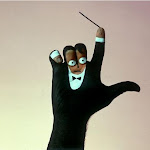 By Kyle MacMillan
By Kyle MacMillanDenver Post Fine Arts Critic
Posted: 04/12/2009 12:30:00 AM MDT
Listen: Life With Classical Music,
a U.S.-based publication, will face tough competition from rivals Gramophone and BBC Music Magazine. (The Denver Post)
A surprise arrived in the mail the other day — a new classical-music magazine.
Titled
Listen: Life With Classical Music, it is the first general-interest classical magazine published in the United States since the 1992 demise of
Musical America, which exists in a restructured form online.
Given the dreary economic climate, continuing fall in magazine advertising, and recent closings and cutbacks in the classical-music world, the timing could hardly be worse for such a venture.
But founder Eric Feidner is undeterred. He faced a similarly inopportune business environment in February 2002, when, just months after 9/11 and the dot-com crash, he established ArkivMusic, a successful online retailer of classical CDs and DVDs.
Will the creation of
Listen turn out to be equally prescient or utterly foolhardy? Only time will tell. Either way, the arrival of this new publication, which is published by ArkivMusic but editorially independent, is exciting news for classical devotees who can't get enough about their favorite performers and composers.
But the magazine faces some tough competition. Dominating the field are the British-based
Gramophone and
BBC Music Magazine, both literate, well-edited publications that do a thorough job of covering the field internationally.
In the United States, there are also a range of niche classical publications, such as
Opera News,
Chamber Music Magazine and
Symphony Magazine, as well as
Fanfare and the
American Record Guide, which focus exclusively on recordings.
Certainly,
Listen's introductory subscription price of $14.85 for one year is an enticing deal. But how many readers of those older publications are going to be willing to drop one of them and/or add yet another magazine to their list of subscriptions?
Given the level of competition the new magazine faces, it is surprising how similar it is in look and focus to its two well-entrenched rivals —
Gramophone and
BBC Music Magazine.
The biggest differences are
Listen's emphasis on features over news, considerably fewer but longer recording reviews, and added focus on the nonmusical aspects of artists' lives, such as pianist Helène Grimaud's favorite vacation spot.
All this got me thinking about my notions of what a new, 21st-century classical-music magazine, especially one published in the United States, should be like.
First off, it should address the American experience. What makes the American classical scene different from that in Britain and the rest of Europe? And what is happening not just on the two coasts but in the rest of the country?
The first issue of
Listen contains a profile of Seattle's classical scene, titled "Scene and Heard in Seattle." Such city overviews are a great beginning, but there could be even more — perhaps looks at trendsetting people and projects in unexpected places.
Second, the magazine should focus on the now. While Beethoven and Brahms will always have their place, an exciting new group of musicians and composers are radically rethinking what classical music is and how it relates to other forms.
Musical pioneersWho are these musical pioneers and what drives them? What is their music like, and is it any good? Why are 20- something indie-rock fans attracted to this adventuresome brand of classical artists? What roles do forward-looking venues like New York's Le Poisson Rouge play?
Finally, given the incredible changes in media and technology in recent years and the resulting changes in listening habits, a regular look at the business of classical music makes sense as well. Subjects could be everything from the future viability of traditional concert formats to radical changes in the recording industry.
But those are just the musings of a potential reader. It will be up to
Listen's editors to define its identity and find a way to make it viable. Here's wishing them luck.
Kyle MacMillan: 303-954-1675 or
kmacmillan@denverpost.com





















